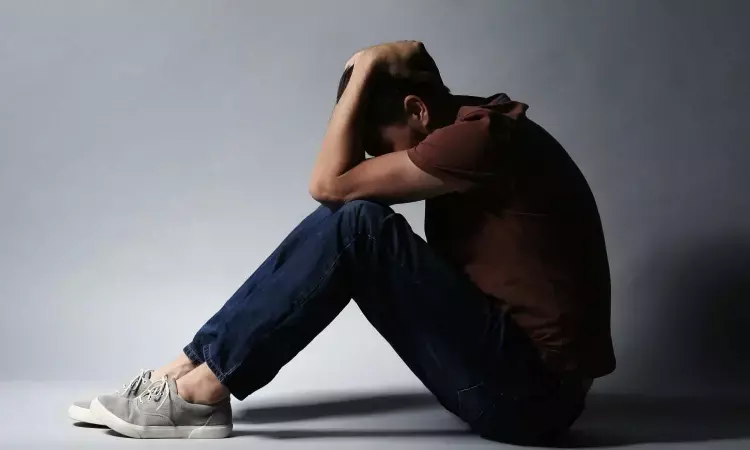- Home
- Medical news & Guidelines
- Anesthesiology
- Cardiology and CTVS
- Critical Care
- Dentistry
- Dermatology
- Diabetes and Endocrinology
- ENT
- Gastroenterology
- Medicine
- Nephrology
- Neurology
- Obstretics-Gynaecology
- Oncology
- Ophthalmology
- Orthopaedics
- Pediatrics-Neonatology
- Psychiatry
- Pulmonology
- Radiology
- Surgery
- Urology
- Laboratory Medicine
- Diet
- Nursing
- Paramedical
- Physiotherapy
- Health news
- Fact Check
- Bone Health Fact Check
- Brain Health Fact Check
- Cancer Related Fact Check
- Child Care Fact Check
- Dental and oral health fact check
- Diabetes and metabolic health fact check
- Diet and Nutrition Fact Check
- Eye and ENT Care Fact Check
- Fitness fact check
- Gut health fact check
- Heart health fact check
- Kidney health fact check
- Medical education fact check
- Men's health fact check
- Respiratory fact check
- Skin and hair care fact check
- Vaccine and Immunization fact check
- Women's health fact check
- AYUSH
- State News
- Andaman and Nicobar Islands
- Andhra Pradesh
- Arunachal Pradesh
- Assam
- Bihar
- Chandigarh
- Chattisgarh
- Dadra and Nagar Haveli
- Daman and Diu
- Delhi
- Goa
- Gujarat
- Haryana
- Himachal Pradesh
- Jammu & Kashmir
- Jharkhand
- Karnataka
- Kerala
- Ladakh
- Lakshadweep
- Madhya Pradesh
- Maharashtra
- Manipur
- Meghalaya
- Mizoram
- Nagaland
- Odisha
- Puducherry
- Punjab
- Rajasthan
- Sikkim
- Tamil Nadu
- Telangana
- Tripura
- Uttar Pradesh
- Uttrakhand
- West Bengal
- Medical Education
- Industry
Regional ECT, clozapine, and lithium use may prevent suicide among teenage men with severe mental illness: Study

Sweden: In adolescent men with severe mental illness, clozapine, electroconvulsive therapy (ECT), and lithium may help in suicide prevention, a new study from Karolinska Institutet has claimed. The study
The study from Karolinska Institutet, published in Nature Communications, also highlights substantial regional variations in using ECT, lithium, and clozapine in adolescent psychiatric care.
Annually, there are 800,000 suicide deaths worldwide. Suicide is the leading cause of death among teenagers and young adults, with up to 90 percent of those affected having a serious psychiatric illness such as depression, bipolar disorder, or schizophrenia.
ECT and the drugs clozapine and lithium are evidence-based treatments for these conditions. While previous studies have shown that these treatments reduce the risk of suicide in adults, it is unclear if they have the same protective effect in young people. Researchers at Karolinska Institutet have now tried to find an answer. They compared treatment and suicide rates across different regions in Sweden.
"We studied if regional suicide rates in 15-19-year-olds were linked to the use of ECT, lithium, and clozapine in young people," says Dr. Adrian E. Desai Boström, the study's lead author and a postdoc researcher at the Department of Clinical Neuroscience, Karolinska Institutet.
The researchers analyzed registry data from 21 Swedish regions between 2016 and 2020. During this period, 632 individuals aged 15 to 24 committed suicide, of which 200 were between 15 and 19 years old.
The excess death rate was measured by comparing suicide levels among 15 to 19-year-olds and 20 to 24-year-olds in the same region. Regions with a comparatively lower suicide rate among 15 to 19-year-olds than 20 to 24-year-olds had higher usage of ECT, lithium, and clozapine in treating young patients.
As the study was observational, it cannot establish causal relationships. However, the findings align with previous research on adults, suggesting that ECT, lithium, and clozapine may also reduce suicide risk in adolescents.
“The results signal that early intervention with medico-psychiatric treatment for severe mental illness can reduce suicide rates in late-teenage boys”, he says.
The study also highlights substantial regional variations in using ECT, lithium, and clozapine in adolescent psychiatric care.
"Our findings indicate unequal access to best-practice care for seriously ill young patients in Swedish child and adolescent psychiatry. Improved care can potentially lower suicide death rates among young men in Sweden," says Dr. Desai Boström.
"The next step for the research group is to evaluate whether these treatments can also be protective for other severe psychiatric diseases with high mortality rates and a relative lack of effective treatment. For example, they hope to investigate whether ECT could be used for severely affected eating disorder patients with comorbid depression."
Dr. Desai Boström suggests that such studies could not only evaluate the impact of treatments on suicide risk but also on positive therapeutic outcomes like enhanced functional capacity, cognitive function, and long-term quality of life.
Reference:
Desai Boström, A.E., Andersson, P., Rask-Andersen, M. et al. Regional clozapine, ECT and lithium usage inversely associated with excess suicide rates in male adolescents. Nat Commun 14, 1281 (2023). https://doi.org/10.1038/s41467-023-36973-4
Dr Kamal Kant Kohli-MBBS, DTCD- a chest specialist with more than 30 years of practice and a flair for writing clinical articles, Dr Kamal Kant Kohli joined Medical Dialogues as a Chief Editor of Medical News. Besides writing articles, as an editor, he proofreads and verifies all the medical content published on Medical Dialogues including those coming from journals, studies,medical conferences,guidelines etc. Email: drkohli@medicaldialogues.in. Contact no. 011-43720751


